We all know the basics of copyright, right?
In essence, it’s a legal term describing rights pertaining to intellectual property, and how it may be used by others.
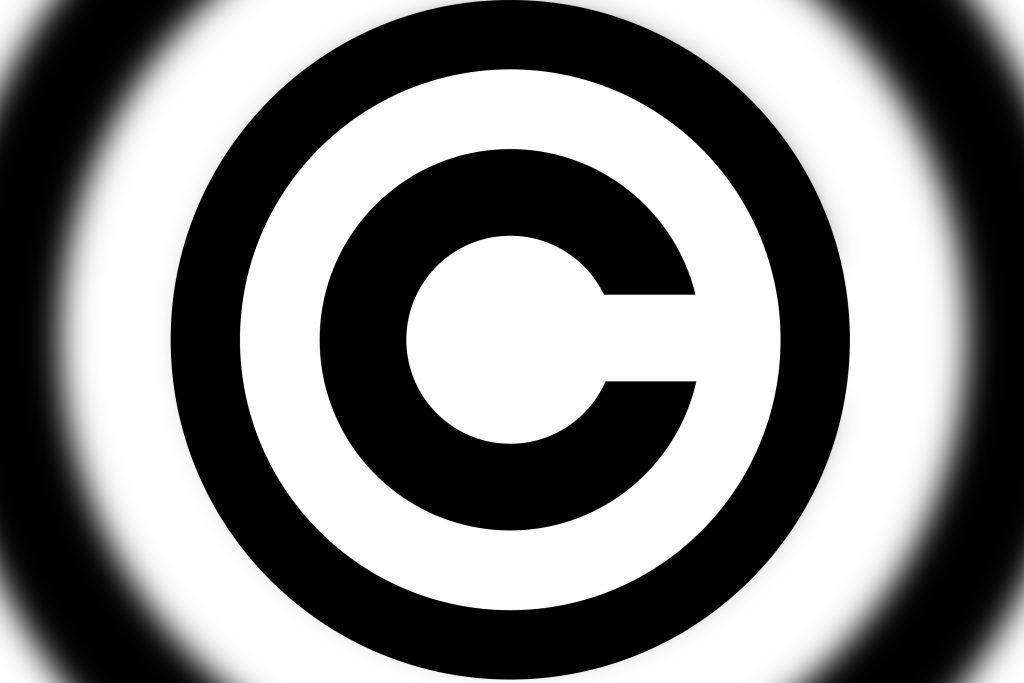
Now, you may have seen the phrase “all rights reserved” a great deal in the past.
This phrase is an older copyright formality used by copyright owners to observe maximum control of their work.
It is still used, but nowhere near as much these days, presumably due to modern free and open licensing options.
 Disclaimer: I’m not a legal professional, so please, always perform any necessary due diligence.
Disclaimer: I’m not a legal professional, so please, always perform any necessary due diligence.
What Does Copyright Define?
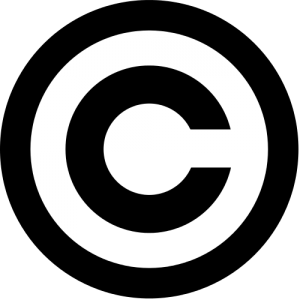 By assigning copyright to your works, you can state whether or not others can:
By assigning copyright to your works, you can state whether or not others can:
- reproduce or sell your work,
- adapt or create derivatives of your work,
- distribute your work, or
- perform your work in a public space…
…while at the same time defining what’s required of others if and when they do any of the above.
What Works Can I Assign Copyright To?
So, what types of intellectual property can have a copyright assigned to it?
The scope is wide, but some popular examples include:
- motion pictures, radio & television broadcasts,
- sound recordings & musical compositions,
- visual and performance art,
- computer software, and
- text-based literary works
If you blog, produce audio, video or podcasts, create art or write code, you can copyright your work.
How Can I Copyright My Intellectual Property?
Just pay me $1,000,000 and I’ll assign a bullet-proof copyright to your work.
<Dr. Evil voice>Riiiigggggghhhhhhht</Dr. Evil voice>
Okay, you got me — that’s a lie.
On a more serious note…
When you create content, it’s automatically assigned a copyright.
That is, provided the content is published in a country governed by the Berne Convention (something like 95% of the world is covered here).
For example, if you post a blog to your website, that’s an act of publishing the work.
Go ahead and render an audio or video file to a hard drive or cloud storage device.
Poof — you just assigned copyright!
Now, there’s a fairly important caveat to what I just said that needs to be addressed.
If you take your copyright seriously, you’ll need to register your work prior to infringement taking place.
Registering gives you the ability to defend it against infringement in court and/or recoup attorney’s fees related to such infringement.
This can be done in the U.S. by registering your work with the United States Copyright Office.
 Image courtesy of Tom W. Bell (http://www.tomwbell.com/writings/(C)_Term.html) [CC BY-SA 3.0 ], via Wikimedia Commons
Image courtesy of Tom W. Bell (http://www.tomwbell.com/writings/(C)_Term.html) [CC BY-SA 3.0 ], via Wikimedia Commons


 See what I did there?
See what I did there?
I used an image that was licensed using Creative Commons alongside the copy above. In exchange for its use, I applied proper attribution, per the license requirements.
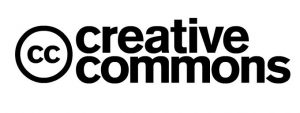 What Options Do I Have When Assigning Copyright?
What Options Do I Have When Assigning Copyright?
There are many options when it comes to assigning copyright.
One of the most flexible and widely-recognized are the Creative Commons licenses.
Using these, we can easily specify all the possible details governing how our work can be used by others.
For example, if I want to allow others to use my work commercially, it just takes a few clicks.
Perhaps I want to require that they attribute me?
Another click or two, and done.
That being said, there are plenty of considerations to make prior to assigning a Creative Commons license.
One of the most important, is understanding that once it’s published under the chosen license, it’s irrevocable.
More essential considerations can be found on the Creative Commons site.
If you’d like to get started applying a Creative Commons license to your work, you can do so here.
 Copyright and 3rd Parties – Example: YouTube Pt. 1
Copyright and 3rd Parties – Example: YouTube Pt. 1
Nowadays, creating intellectual property, assigning licenses and posting on public forums for worldwide access is dead simple.
One ubiquitously popular place for doing all of the above, for free and specific to video, is YouTube.
A really nice, while potentially overlooked feature is that the service provides the means for users to assign Creative Commons licensing to their videos, but it’s not the default license.
What is assigned by default is the standard YouTube license, which can be viewed in full, here.
Now, it seems as though YouTube may have come under scrutiny at some point in the past, because they make a point of stating the following in their terms:
6. Your Content and Conduct
C. For clarity, you retain all of your ownership rights in your Content.
Well I guess that seems pretty straight-forward.
Wait — there’s more!
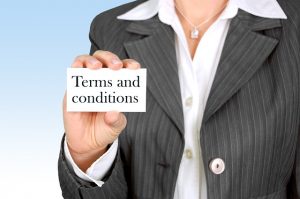 Copyright and 3rd Parties – Example: YouTube Pt. 2
Copyright and 3rd Parties – Example: YouTube Pt. 2
Immediately following the introductory sentence of 6C (seen above), there’s also this:
However, by submitting Content to YouTube, you hereby grant YouTube a worldwide, non-exclusive, royalty-free, sublicenseable and transferable license to use, reproduce, distribute, prepare derivative works of, display, and perform the Content in connection with the Service and YouTube’s (and its successors’ and affiliates’) business, including without limitation for promoting and redistributing part or all of the Service (and derivative works thereof) in any media formats and through any media channels.
Now that’s a HUGE caveat!
Sure, you get to “keep” your ownership rights, but look at the license you’re granting. ?
There’s also this about other YouTube users:
You also hereby grant each user of the Service a non-exclusive license to access your Content through the Service, and to use, reproduce, distribute, display and perform such Content as permitted through the functionality of the Service and under these Terms of Service.
Again, I’m no legal expert, but to me the above excerpts mean that they, and other users, can do pretty much whatever they want with our content when on YouTube.
Section 6C goes on to state the following:
The above licenses granted by you in video Content you submit to the Service terminate within a commercially reasonable time after you remove or delete your videos from the Service. You understand and agree, however, that YouTube may retain, but not display, distribute, or perform, server copies of your videos that have been removed or deleted.
So, even if you delete your content from YouTube… copies will likely remain on their servers, and only after “a commercially reasonable time” will the license terminate.
I think it’s safe to say that what I might consider “reasonable” and what YouTube might consider “reasonable” has the potential to differ, greatly.
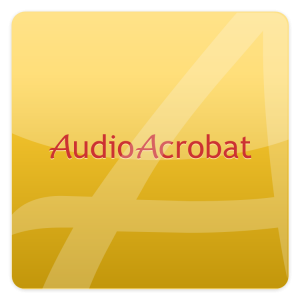 Copyright and 3rd Parties – Example: AudioAcrobat
Copyright and 3rd Parties – Example: AudioAcrobat
Now let’s take a look at another service that I’m intimately familiar with, AudioAcrobat.
In contrast to the previous example, nowhere in AudioAcrobat’s terms is it stated that any type of license is applied to the works created within or uploaded to the service.
What is stated is this:
17. I understand that all audio, visual or text content I have created, listed, and published while an AudioAcrobat Member is subject to copyright, trademark or other laws regarding intellectual property ownership. It is my sole responsibility to abide by all such laws with regard to publishing audio or any other forms of content. I will hold AudioAcrobat.com, its affiliates, agents, partners, and owners completely harmless and not liable for any copyright, trademark or intellectual property infringements that may arise from my violation of the Copyright Laws.
I reiterate — I’m no legal expert — but what this says to me is that as long as you own the copyright to the work, AudioAcrobat makes no claims to it, plain and simple.
Sure, any applicable copyright laws governing the content will be upheld (as well they should!), but at the core you’re not granting AudioAcrobat free will to do whatever it pleases with your work.
That also likely explains why AudioAcrobat players and web pages aren’t riddled with 3rd party advertising and “recommended” content from other users. ?
Copyright and 3rd Parties – Unique Cases
I was recently listening to a compilation album of poetry performed live by American singer-songwriter, poet and record producer, Mike Posner, when I heard something that raised my eyebrows a bit.
In the track above, Mike can be heard stating that,
There are a lot more of these on YouTube, but it’s hard to get the rights to legally release them.
While he doesn’t go into detail, I can only imagine that there’s some amount of red tape spawning from these works being released on YouTube that is preventing their commercial release outside of the social network.
That’s just my take on the matter, but it’s something I feel is worth considering when agreeing to any 3rd party’s terms of service.
If what you’re hosting on their servers is something that you may want to release commercially, do yourself a favor and think twice before hitting the “upload” or “record” button.
While this is a bit of an extreme case, it could mean the difference between having a commercially viable product, or not.
A Brief Wrap-Up
So there you have it — a crash course, if you will — in copyright.
I hope that by reading this you have a better understanding of what copyright is, how it can be assigned and customized to work for you, the copyright holder, and what to look out for when navigating today’s digital landscape.
It can get pretty murky out there, so pack your galoshes!
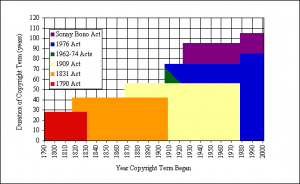


![Rumblefish: Music Licensing API [#FollowFriday]](https://audioacrobat.files.wordpress.com/2011/07/rumblefish-logo.jpg?w=350&h=200&crop=1)
